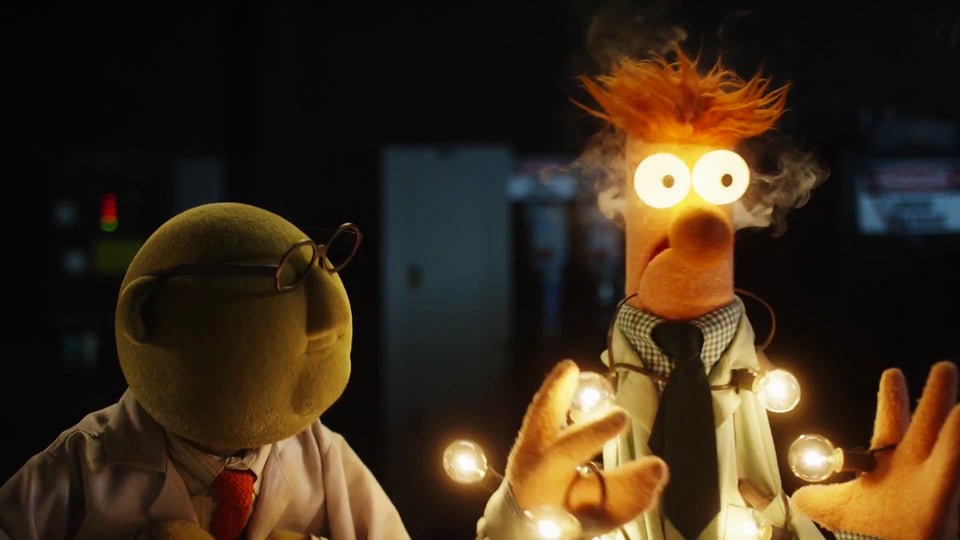The Difference Between Deceptively Simple and Deceptively Complex
Hey everyone! I'm afraid I don't have time to write a brand new newsletter this week. My mom has been visiting from out of town, and I'm under a bunch of crushing deadlines, including a novel revision deadline. So I'm reupping some mini-rants I wrote for my Tumblr back in 2016-ish, which very few people have seen.
Also! Just a reminder... the trade paperback collection of New Mutants: Lethal Legion comes out on Tuesday. This is the silliest, most off-the-wall heist story you've read lately, but also a meditation on trauma and healing. You can get it wherever books and/or comics are sold, but if you pre-order from Folio Books, I will sign, personalize, and draw whatever doodle you want. Folio will donate ten percent of all proceeds to the TGI Justice Project, and I'll match their donations.
Sometimes you have a story that appears ridiculously simple when you first look at it, but then you peel back the layers and it suddenly has all this stuff going on and you could write a book about all the different things. And sometimes, you have a story that looks like it’s got a million bells and whistles and layers and wheels going around each other at odd angles – but when you look past all of the surface complication, you’ve actually got a super simple story.
I guess Ex Machina is an example of “deceptively simple.” It’s just two guys and an A.I., in a bunker, but wow there’s a lot going on. And Lost is an example of deceptively complex: It’s got the Others and the Dharma Initiative and a billion subplots and polar bears and everything, but in the end it’s just a story about the Smoke Monster’s sibling rivalry with Lucifer from Supernatural. Or maybe about Jack navigating the conflict between science and faith, I guess.
I have a feeling my stuff errs on the side of “deceptively complicated.” I write things that have a million things whizzing around, but they boil down to one or two simple ideas. Or at least, I hope that there’s one or two main ideas when you look past all the fancy whizzbangery on the surface, or else you are left with just a mickle of a muddle. Right?
I wish I knew how to create something deceptively simple. I have a feeling it’s a matter of keeping the obvious stuff in the story down to the minimum – only a few characters, relatively few locations, a simple plot, not a ton of random plot devices or whatnot. But then letting the characters have complex inner lives, and lots of interesting ideas among them, and a bunch of themes that come up in different ways.
But if something is deceptively complex, how do you keep it from becoming just straight-up overcomplicated and messy? I wish there was a magic bullet – but I think part of it is that if you want to be able to strip away all the layers of complexity and find something stark underneath it all – a single stark element – then that needs to be there the whole time. You have to have one idea that you keep coming back that underpins the whole thing.
So maybe the thing that makes complexity “deceptive” is a having a through-line – an idea, or a story element, that you follow from the very beginning of a work right until the end. At least, that’s one way to tell if it’s possibly working. Maybe.

Bonus Rant: I Care About Characters Who Geek Out Together
If you want me to invest in two or more characters, show me them debating and discussing stuff, and figuring things out together.
Not just “figuring out the plot” discussion, but also “which is cooler: unicorns or pegasi?” discussion. Maybe because I spend every waking minute of my life geeking out and arguing about science fiction and fantasy stories, I automatically identify with characters who enjoy geeking out and dissecting nerdy ideas. I don’t even think of it as a thing – I just get more invested and excited when characters are having a highly theoretical or nitty-gritty discussion, just because they enjoy it.
I live for that kind of stuff. Just like I love characters who are curious, in general. Characters who take things at face value or don’t think to question their surroundings, I always have a really hard time rooting for. But I immediately am on the team of characters who have a lively mind and want to know stuff. You know, geeks.
Bonus Rant: The Real Problem With Bad Tropes
I was noodling recently and thinking about tropes. Everybody always says that a trope can be good or bad, it’s just a matter of how well you execute it. I totally believe that, although I also think some tropes are just too overused. (Like Bullet Time was, for a while.)
But really, the thing that can make tropes bad is when they reflect an assumption that’s never questioned. Of course the keys to every car are going to be inside that flap over the car’s windshield, because everyone always leaves them there. Of course the badass female lead will fall in love with the male hero after thinking he’s pathetic for two hours, because that’s what chicks are like. Etc. etc. Tropes are fine, but one of the reasons why we get so much pleasure out of seeing them subverted is because they usually come bundled with lots of unquestioned assumptions, and expectations about the way the world works. I’m all for a trope that feels like someone has thought about how this works for 30 seconds. Not asking for a whole minute, just 30 seconds.
That's it from me! I promise I'll be back with a brand new newsletter next week. Until then, stay warm and dry, and don't leave your car keys behind the sunshield flap thingy.